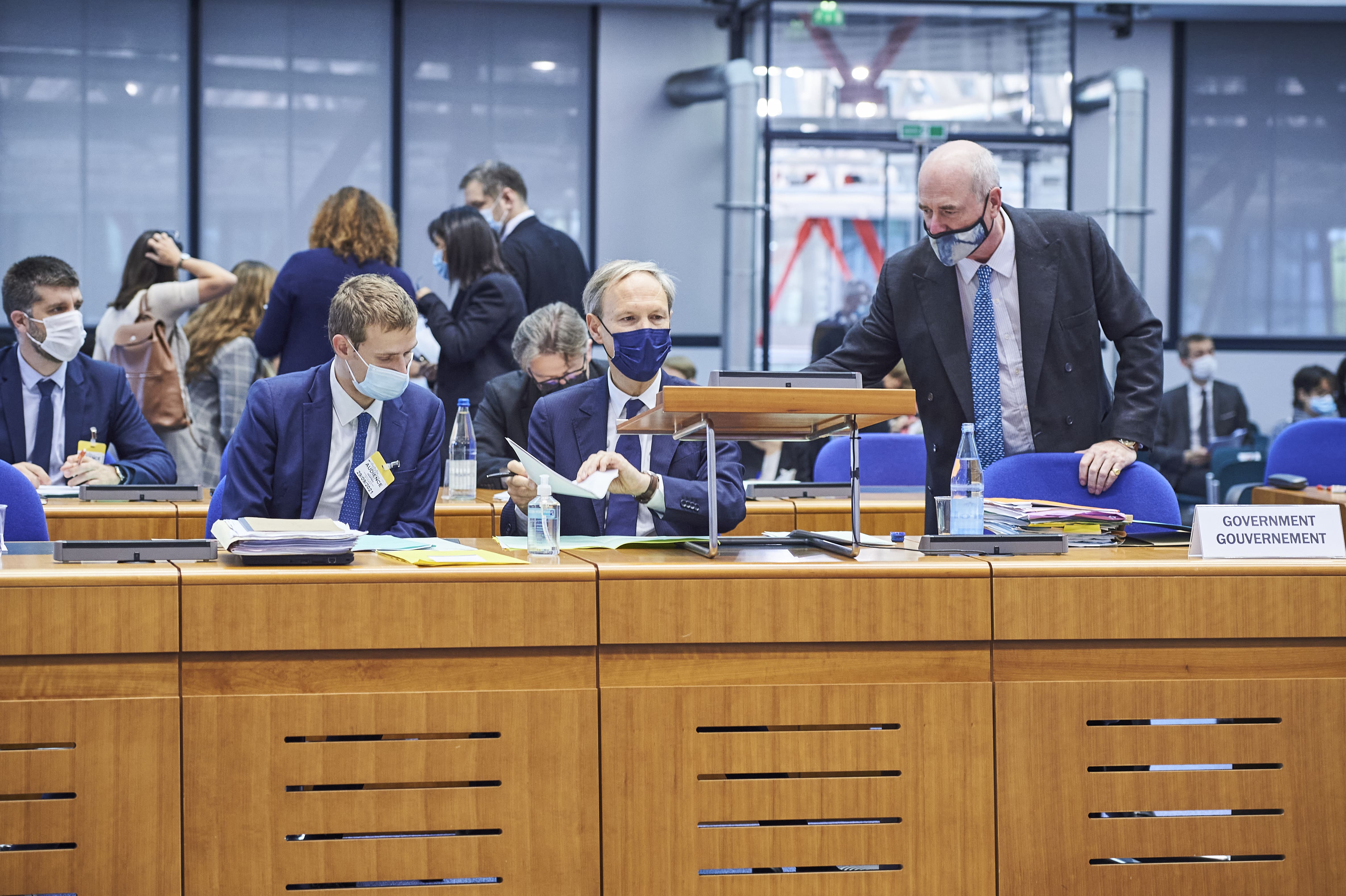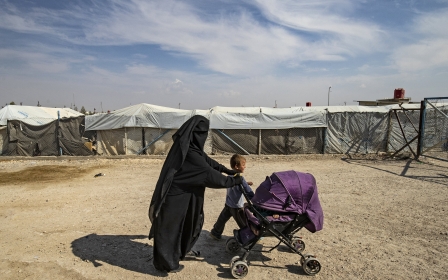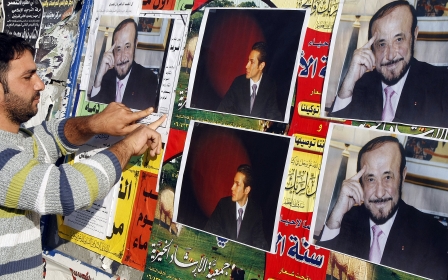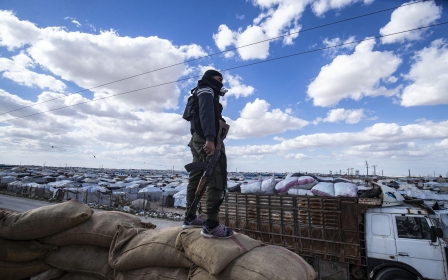Syria: Could a European court force France to bring home families of IS fighters?
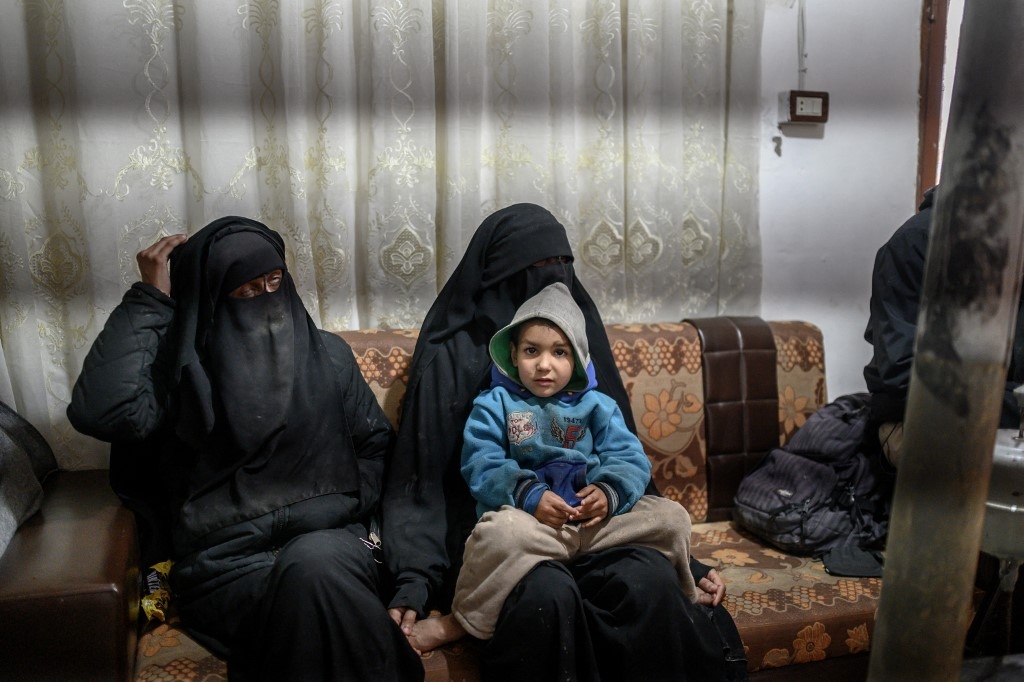
France this week faced legal action for not repatriating families of so-called Islamic State fighters from northeast Syria, in a landmark case that advocates hope will force France - and other European countries - to finally bring home women and children imprisoned in Kurdish-run camps.
Judges from the Grand Chamber of the European Court of Human Rights (ECHR) in Strasbourg on Wednesday heard from lawyers representing two French families whose daughters joined the Islamic State (IS) group and have now been held in Kurdish-run camps - with their young children - for several years.
Thousands of foreigners travelled to Syria and Iraq during the height of the so-called IS caliphate, which covered roughly a third of both countries.
While IS has since lost control of these territories, the fate of foreigners detained in camps, the majority of whom are women and children, has remained a lingering question for many countries such as France, which are reluctant to repatriate citizens who may have had ties to the militant group.
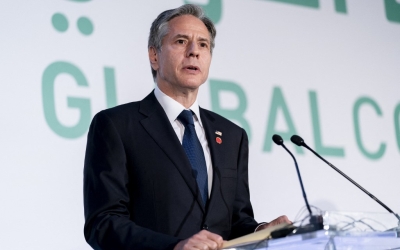
France, which has been sharply criticised and urged to repatriate by rights groups and even its own security officials, has roughly 200 children and 1o0 women in the al-Hol and al-Roj camps, located in Syria's northeastern Hasakah province and run by the Syrian Democratic Forces (SDF), an alliance of Kurdish and local Arab groups.
The two French families involved in Wednesday’s hearing, who remain anonymous, had previously tried to force France to repatriate in national courts, only to see their cases rejected and eventually sent to the ECHR’s Grand Chamber.
“It’s extremely sad that to defend human rights, the rights of children who are suffering in the camps, we had to fight all the way up to the European Court of Human Rights,” said Marc Lopez, whose daughter-in-law and four grandchildren are in al-Roj.
“It should never have got to this,” added Lopez, who helps run Le Collectif des Familles Unies, a group for families whose relatives joined IS.
“They should have returned two or three years ago.”
'Guantanamo for children'
Two-thirds of the French children in the camps are less than six years old, according to the collective. Many other children have died - two per week according to a recent report - and several of the French women there claim to have been beaten in prisons run by SDF guards, according to families and a lawyer speaking to Middle East Eye.
Last year, Rights and Security International accused Western countries of being complicit in the creation of a “Guantanamo for children” by leaving them in “violent, unsanitary and inhumane” conditions.
France has previously repatriated around 35 nationals. Some were orphaned children, but others were split from their mothers, who French authorities refused to repatriate.
In an audio recording from one of the camps heard by MEE, a tearful French mother explains how she couldn’t bring herself to let her youngest go, given the awful choice to let her children return home on their own or remain with her in the camp.
She cries as she explains how her two oldest children were driven away by French authorities.
“These kids’ only memory of Syria is the camps,” Marie Dosé, a lawyer for families whose relatives are in the camps, told MEE during an interview in her Paris office a week before the hearing.
“For them, France is a country saying, ‘we would rather see you perish in a camp than see you return'.
“They didn't ask for any of this,” she added. “They didn't ask to be brought there, or born there.”
France on trial
The unidentified daughters of the two families involved in the case, referred to simply as Madame F. and Madame D., were both taken to al-Hol camp after the fall of Baghouz in 2019, IS’s final enclave in eastern Syria.
Madame F. and one of her children had been wounded by shells, according to Dosé.
In August 2020, as the SDF moved women and children from al-Hol to the smaller, more secure al-Roj camp, both women and their children were taken to an underground prison, where conditions were “abominable”.
Madame D.’s son, who was just weeks old, had a heart attack in prison and nearly died. They are now in al-Roj.
Madame F.'s family and lawyers have heard no news since she and her children were taken to prison over a year ago.
However the judges rule, and their decision will take several months, Wednesday’s hearing will set the precedent for future such cases across Europe. It will likely dictate whether the women and children languishing for years in the increasingly insecure camps will eventually be brought home: the mothers to face justice, the children - whose fathers are likely dead or in prison - to begin the process of reintegration into society.
On the side of the families, represented by lawyers Dosé and Laurent Petiti, numerous rights groups and international organisations submitted documents to the judges before Wednesday's hearing, urging for repatriation on both humanitarian and security grounds.
The United Nations Special Rapporteur on human rights and counter-terrorism, for example, wrote, “this case offers an opportunity for the Court... to set international best practice for compliance with human rights standards".
UNICEF published a statement pushing for repatriation on the day of the hearing.
France, meanwhile, represented by François Alabrune, director of legal affairs at the foreign ministry, was supported by Norway, Denmark, The Netherlands, Belgium, Spain, Sweden, and the UK, who all sent the ECHR judges arguments against repatriation.
Some of them have recently carried out repatriations or appear to be making moves to do so.
MEE lodged a request to see documents submitted by the intervening states, but an ECHR spokesperson said that they were “classed as confidential” and could not be shared.
Jurisdiction and control
Standing before the judges in the expansive hall of the ECHR’s Grand Chamber, Dosé and Petiti argued that France was in violation of several articles of the European Convention on Human Rights, chief among them that “no one shall be subjected… to inhuman or degrading treatment or punishment."
They argued that France has a “positive obligation” to ensure the rights of its citizens were respected, and that, in its implicit refusal to repatriate nationals from the camps, France was violating another article stipulating that “no one shall be deprived of the right to enter the territory of the State of which he is a national.”
The Council of Europe Commissioner for Human Rights Dunja Mijatović agreed, arguing, “repatriation is, in my opinion, the only way forward".
“[The children] should not be forced to bear the consequences of their mothers’ choices,” she said, adding that France’s “case-by-case” approach to bringing nationals home “cannot be justified… no one can claim that certain children are not at risk and are not going through this continuum of violence.”
France’s lawyer, who was joined by British and Dutch lawyers representing the seven other European countries, argued that while Paris was “fully aware of the human drama at the heart of today’s case”, it should not be obliged to repatriate, as it has no jurisdiction, control or authority over its citizens in northeastern Syria.
Alabrune also argued that such repatriation missions are mortally dangerous.
'It should never have got to this... They should have returned two or three years ago'
- Marc Lopez, Collectif des Familles Unies
Dosé and Petiti countered that France does have jurisdiction, given that the women and children in question are French nationals and that France has done repatriation missions before, which, they said, scuppers the claim that such missions are too dangerous.
Petiti also highlighted that the security situation hasn’t stopped the US, Tajikistan, Uzbekistan, Russia, Kosovo, Indonesia, and Algeria repatriating nationals.
The UN’s Special Rapporteur wrote before the trial that states with the ability to repatriate nationals from the camps have “de facto jurisdiction”.
For Alabrune, however, "The fact that France has repatriated 37 children does not mean that it can repatriate all its nationals in the future.” He described any obligation to repatriate as an “excessive burden”.
He also referenced the Cazeneuve Protocol, an agreement between France and Turkey under which authorities in Turkish-controlled areas fly French nationals home once they reach Turkey or Turkish-controlled Syria.
Under the agreement, 250 French citizens who were once in IS territory have been returned home - “expelled”, not repatriated, the French stress.
“The [families’] relatives could benefit [from this agreement]... if they got themselves to Turkey,” Alabrune said.
“You cannot escape al-Roj,” Dosé replied, referring to the camp where most of the French nationals are now held. “The only way to get these women and children out is repatriation.”
France also argued that they didn’t know the women’s “real intentions”, and that some of them would be difficult to locate, which Lopez of the families collective described as a “lie”.
“We know their tent numbers,” he told MEE.
The judges then took turns to pose questions: asking for specifics on the conditions of the families, for example, and why France had not responded to the families’ repatriation requests.
Alabrune, France’s lawyer, appeared less assured answering questions. He repeatedly slicked back his hair and made the mistake of saying the names of the families - who had requested anonymity - several times before a judge interjected.
His error delayed publication of the hearing video online.
Alabrune seemed to be thrown when a judge posed a hypothetical question about whether France would come to the rescue of a group of reckless tourists who had stranded themselves on a desert island.
“I felt the government’s representative was uneasy,” said Lopez of the families collective, who was in the room. “But I mean, it’s normal, I don’t know how they can look at themselves in the mirror.”
Wednesday’s hearing is not the only ongoing legal action aimed at forcing France to repatriate.
In March, lawyers representing other families of French citizens held by the SDF urged the International Criminal Court to launch an investigation into President Emmanuel Macron’s possible “responsibility and/or complicity” in alleged war crimes committed against French nationals in the camps.
Would France accept a ruling to repatriate?
“This topic is particularly problematic for governments," a UN legal expert who has worked on these issues for more than a decade told MEE. "They think that if they [repatriate], they will have public opinion against them.”
Asked whether the ECHR could force France to repatriate, the expert added, “the judgement is final and, in principle, executable immediately. But we know that many judgments are simply not really dealt with… [France] could simply decide not to.”
On the day of the hearing, however, the French Ministry of Justice published a press release celebrating the right of its citizens to take France to the ECHR if they feel their rights have been violated, with Justice Minister Eric Dupond-Moretti “renew[ing] his full support for the European Court of Human Rights”.
The statement added that the ECHR has condemned France in just 2% of the more than 30,000 such cases, a testament to “the space given over to fundamental freedoms in France”.
Spokespeople for the foreign affairs and justice ministries did not respond to a question about whether France would comply with the ECHR’s ruling, which cannot be appealed.
“If the court condemns France, France will have no choice but to repatriate these children and their mothers,” Dosé, the lawyer, told MEE.
Many families and advocates fear, however, that next year's presidential election will compel the French president to repatriate only after the April 2022 vote, if at all.
“[The mothers and children] are prisoners to Emmanuel Macron’s desire to be re-elected,” said Dosé. “He doesn’t want to risk unpopularity.”
In February 2019, the French newspaper Libération revealed French plans to repatriate hundreds of nationals from the camps, based on a document later seen by MEE.
But an opinion poll published weeks later seems to have changed the government’s mind. Ministers backtracked and plans to repatriate French fighters and their families appear to have been scrapped.
“No-one with knowledge of the subject, no institution, no terrorism specialist, supports the refusal to repatriate. It is in no way justifiable, except to secure elections,” said Dosé.
The UN expert said that France might be tempted to use a possible ECHR condemnation as a way out of the repatriation bind - the perceived unpopularity of the move versus the human rights and security concerns - by arguing, “It’s not our decision, it’s our obligation."
It would be a political calculation families back in France would readily accept.
Albert, a man from Brittany whose daughter and young grandson - who he has never met - are stuck in al-Roj, told MEE during a visit to his home last week that he was hopeful for the hearing.
“A condemnation [of France] could be good,” he said. “The fact that all these states came to support the French government shows that they’re… really bothered by this.”
“The problem in France is that there’s always an election,” Sabrina, a woman speaking under a pseudonym whose sister and nephew are in al-Roj, told MEE in her Paris apartment.
“But it’s true that [the hearing] has given us a bit of hope.”
Middle East Eye delivers independent and unrivalled coverage and analysis of the Middle East, North Africa and beyond. To learn more about republishing this content and the associated fees, please fill out this form. More about MEE can be found here.



